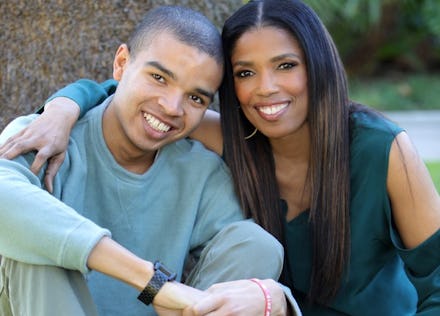My son is Black and lives with autism. How do I protect him from police brutality?

With the horrible killings of Ahmaud Arbery and George Floyd being replayed countless times on cell phones and televisions across America, many Black American parents have sadly concluded that having "the talk" with their young sons is more urgent now than ever.
For those unfamiliar with the term, “the talk” is when we Black mothers and fathers give our teenage sons, most of whom are preoccupied with the joys of adolescence, a sobering and cold dose of reality. We tell them they can no longer enjoy the presumption of innocence. That they're now are at an age where a wrong left turn behind the wheel might capture the attention of police, and if they should be stopped and questioned and made the slightest miscalculation — talking back in defiance or impulsively reaching for their wallet — it could result in them being fatally shot or choked to death.
The talk used to only consist of telling our young boys how to speak and behave in the presence of police, but now, sadly, we must add gun-toting vigilantes to the list.
For any Black parent, the talk is a difficult moment. For those of us with children with autism, it is doubly so. I know many Black American males — doctors, lawyers, teachers — who have harrowing stories of encounters with police. If these prominent professional men struggled in their encounters with police, it terrified me to think about what could happen if my son were ever stopped and questioned. Although my son, Marty, who is on the autism spectrum, is intelligent and high functioning in some areas, he, like most people with autism, processes information differently.
I constantly worry about what would happen if he encounters the police and failed to fully understand a verbal command given to him. What if he became fidgety or mistakenly reached for his wallet? A million nightmarish scenarios run through my mind. I have had to rethink whether the talk would even work with my son.
My usual default position, when confronted with a crisis or problem, is to be bold and aggressive and meet it head-on. But when my son reached his teenage years, I went against my nature.
I had my husband, Ernest, shave off all of Marty’s facial hair and I had his barber give him a conservative, closely cropped haircut. I didn't want Marty to have even a wisp of a mustache or goatee—nothing. When it came to clothes, anything too trendy, flashy, or remotely suggestive of hip-hop style was out. I wanted my son to look like a choir boy — as young, boyish, and non-controversial as possible. In effect, I wanted to make my son invisible to the police.
All of this caused me internal conflict and emotional pain because I realized these were the teenage years when most boys began expressing their originality and developing their own style, and here I was robbing my son of that rite of passage. But it was the only way I could think to protect him.
What I didn’t realize at the time was that the cosmetic changes I was forcing my son to make were futile because they didn’t mask the thing that mattered most — the color of his skin. My son, no matter how innocent he looked, would always be a target of police simply because he was Black.
I know that I am not alone when it comes to worrying that a loved one with autism, or a developmental disability, or mental health challenges will one day encounter the wrong cop — one who won't recognize that special needs people often require patience. I recently spoke about my worries concerning my son on CNN and the response from viewers who empathized with my fears was overwhelming. One email was particularly moving.
"I saw you today on CNN. While I was trying to process the horrible news that just doesn't seem to stop, I heard you mention your concerns for your son. When you began to speak about his autism and how much you worry about the constant possibility of him being shot for being a young Black man and an autistic young man, my tears spilled over. My son is 30 and autistic. My son is white but he is your son. Your son is Black but he is my son. Today (shown on CNN crawl) in Jerusalem, the Israeli police shot and killed a Palestinian man who they later learned had Autism. I am Jewish but that man is my son. That man is OUR son.
The intersection of so many kinds of lives binds us together. We must find a way for all of our sons and daughters to be safe. To be loved and safe.
I pray for reconciliation, recognition, and rebuilding of the shredded social fabric of the United States. Thank you for sharing your story.” - Faye
I was truly touched by Faye’s words, and I do believe America would be a much better place if more people could see the world through eyes as honest and loving as hers. But every time I turn on the news and see the story of an Elijah McClain, an innocent, unarmed Black man who was murdered by police, I am reminded that my son is not Faye’s son. My son is a Black man, and to racist cops that makes him only one thing — a suspect.